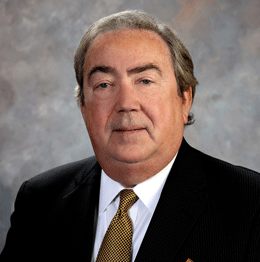
As a graduate student at the University of Chicago, Jeff Sterba was on track to become an economics professor. But after three years without taking a trip home to New Mexico, Sterba decided to accept a summer internship near his hometown at a utilities company.
“To make a long story short, I never went back to grad school,” says Sterba. That diversion paid off: today, he’s the chief executive of American Water, the Voorhees-based company that is now the nation’s largest investor-owned water and wastewater utility. “The energy industry was a fascinating one because it was going through such a change,” Sterba says, of the time when he started out in the biz years ago. “Now, [we’re] going through another metamorphosis.”
Managing something as fundamental as people’s water supply must come with an inherent stress level. How do you manage that?
We are the only utility product that is actually ingested, and that brings with it a certain responsibility that our people take on wholeheartedly. And with the challenges we’ve had in the foods that we eat, it’s a good reminder for us about the risks and our obligations. As for stress managers, for me it’s laughter. Sometimes I may throw people off, because I will laugh at some of the oddest things, but it’s a mechanism I use to cope. That doesn’t mean that you laugh all the time, but it gives me a clearer ability to think through the issues. Also I always remember the team. Anyone who thinks they alone have the capacity to make a company succeed, they are a CEO who is doomed to fail. The world is too complicated for anyone to have all the right answers. I find as a CEO it’s important to ask all the right questions of the people you surround yourself with.”
How do you balance environmental issues with business principles?
I don’t think about balancing them. I think that they are two sides of the same hand. When I think about the sustainability of a business, that sustainability really has three legs. It does involve the environment; it also involves the financial health and the communities that it serves. What I’ve found over the last 12 years while I’ve been a student of sustainability is that in most instances where people think there’s a cost, there’s really not. There’s a cost not to act.
Describe your approach to management.
First, I believe in establishing high expectations and then rewarding progress toward them. I don’t believe in establishing slight goals. I believe in aspirational goals. I believe a leader is less and less there to make decisions but to ask the right questions. And the other responsibility is to help create a good environment. Leadership is the art of enabling ordinary people to create extraordinary things. It’s not something you pick up out of a management book. You can’t dictate to people, you have to enable them.
Published (and copyrighted) in South Jersey Biz, Volume 1, Issue 9 (September, 2011).
For more info on South Jersey Biz, click here.
To subscribe to South Jersey Biz, click here.
To advertise in South Jersey Biz, click here.








